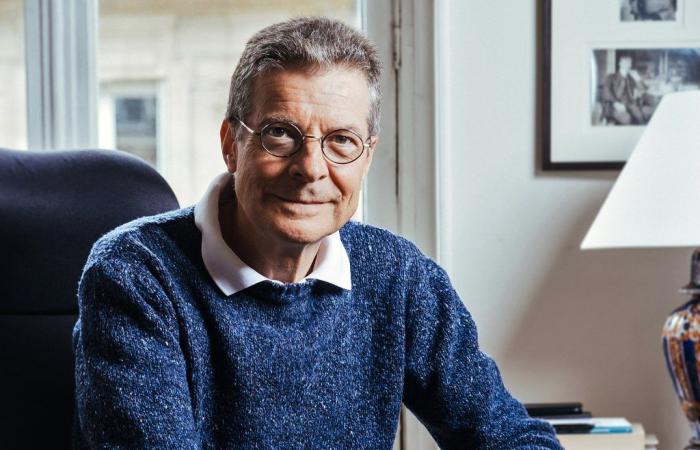“Literature pays!” », trumpets Antoine Compagnon from the title of his new book. A short, lively and well-documented volume through which the professor at the Collège de France and academic intends to demonstrate that reading is an activity which, in addition to enriching souls, provides everyone with tangible weapons on the job market and the life.
SHE. – From the start of your book, you mention the takeover of Hachette by Vincent Bolloré’s group and the overall economic context of French publishing today. For what ?
Antoine Compagnon. – Because the subject of the book is literature, reading and money. However, publishing today is a capitalistic world with a certain number of financial interests. I wanted to point out the gap that exists between them and the little income of authors, of whom only 15% receive more than 9,000 euros in royalties per year, or half of the minimum wage. There is a sort of imbalance to which public opinion is – or should be – sensitive. Colette, when she advertised, spoke of the “second profession of the writer”, but in reality, apart from a few bestsellers, it is rather the profession of writer which is secondary for many.
It was also women who, as readers, made the novel successful in the 19th century.
SHE. – What about the remuneration of literature for women, as authors and as readers? They have, it seems, been very educated for a long time without obtaining much social reward for their “literature”, as you say, wishing to rehabilitate this old French term to designate literary culture.
A.C. – I’m not sure they didn’t get a return on their investment in literature. Think about this tradition of salons which, in the 17th and 18th centuries in France, were run by women. They thus managed, until recently, an entire part of social life. Elections to the French Academy took place at Florence Gould’s lunches at the Hôtel Meurice. It was also women who, as readers, made the novel successful in the 19th century.
SHE. – You have reservations about the development of “shared reading”, which thrives in fairs, festivals… Why?
A.C. – This emphasis on “reading communities” didn’t exist at all when I was 20. There were not even readings organized in bookstores, whereas today every small village has its book festival. We can have a positive vision of it, because it makes people read, but we can also fear that these festivals will replace “real” reading, that which makes the neurons and the imagination work, of which I keep the idea that it happens when you are alone with a book.
Listening to an audiobook means listening to an interpretation
SHE. – You’re not a fan of the audiobook either…
A.C. – I am, it’s true, a little appalled by the recent success of the audio book, which we listen to while doing something else. In addition, listening to an audiobook means listening to an interpretation, because every reader is an actor. I myself listened to a lot of podcasts at one time, and then I realized that it stopped me from thinking. I learned as I walked, but I no longer thought. As a result, I moderated my consumption a lot.
SHE. – What is your view on the literary season?
A.C. – I follow her at a relative distance. We can wonder if it has an effect outside of a small Parisian environment. All the same, since books sell… But there are only a few winners for hundreds of published works. It’s a funny thing, which also shows that successes are unpredictable, and which proves the importance of readers since it is they, in the end, who make the difference.
© Julien Faure
“Literature pays!” », by Antoine Compagnon (Éditions des Équateurs, 186 p.).






